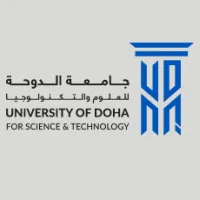
The Master of Science in STEM Education and TVET is a two-year graduate program designed to prepare educators with advanced skills and knowledge for delivering innovative Science, Technology, Engineering, and Mathematics (STEM) education alongside Technical and Vocational Education and Training (TVET). Aligned with Qatar’s National Vision 2030 and international standards, the program fosters interdisciplinary teaching approaches, critical thinking, technology integration, and culturally responsive pedagogy. Through rigorous coursework, graduates are equipped to design and implement forward-thinking STEM and TVET curricula that inspire learners, enhance engagement, and address diverse educational needs.
Program Duration:
Admission Requirements:
2. A valid (within two years) IELTS Academic Test Report Form with an overall band of 6.0 with no individual band score (reading, writing, speaking, and listening) below 6.0; OR
3. A valid (within two years) TOEFL iBT score of 72 and minimum scores of 17 in listening, 18 in reading, 20 in speaking, and 17 in writing.
2. Employment certificate from current or previous employer indicating minimum three years full-time teaching experience; and
3. A satisfactory performance in the personal interview with the Admissions Committee.
To see the 2024-2025 Study Plan pages, please CLICK HERE!
2026-2027 Study Plan:
| COURSE NUMBER |
COURSE TITLE | REQUISITE | HOURS/WEEK | |||
|---|---|---|---|---|---|---|
| Pre-req | CO-req | CR | LEC | LAB | ||
| SEMESTER 1 | ||||||
| EDUC6310 | Foundations of STEM Education & Technical & Vocational Education & Training (TVET) | - | - | 3 | 3 | 0 |
| EDUC6330 | Project-based Learning & Socioscientific Issues | - | - | 3 | 3 | 0 |
| EDUC6270 | Teaching STEM in Arabic & International School Settings | - | - | 3 | 3 | 0 |
| Semester 1 Total: | 9 | 9 | 0 | |||
| SEMESTER 2 | ||||||
| EDUC6320 | Mathematical Modeling: Theoretical Frameworks and Applications | - | - | 3 | 3 | 0 |
| EDUC6340 | Integrating Computational Thinking into STEM Curricula | - | - | 3 | 3 | 0 |
| EDUC6360 | Quantitative Research Methods in STEM Education | - | - | 3 | 3 | 0 |
| Semester 2 Total: | 9 | 9 | 0 | |||
| SEMESTER 3 | ||||||
| EDUC6370 | Qualitative Research Methods | - | - | 3 | 3 | 0 |
| Semester 3 Total: | 3 | 3 | 0 | |||
| Year 1 Total: | 21 | 21 | 0 | |||
| COURSE NUMBER |
COURSE TITLE | REQUISITE | HOURS/WEEK | |||
|---|---|---|---|---|---|---|
| Pre-req | CO-req | CR | LEC | LAB | ||
| SEMESTER 4 | ||||||
| EDUC7301 | Thesis 1 | EDUC6360 OR EDUC6370 AND Min 18 credits | - | 0 | 3 | 0 |
| Elective: select 1 of 10 | ||||||
| INFS1101 | Introduction to Computing & Problem Solving | - | - | 3 | 2 | 3 |
| BIOL1002 | Introduction to Botany | - | - | 3 | 3 | 0 |
| BIOL1003 | Introduction to Ecology | - | - | 3 | 3 | 0 |
| SCIE1001 | Science & Its Applications | - | - | 3 | 3 | 0 |
| SCIE1002 | Science & the Environment | - | - | 3 | 3 | 0 |
| MATH1010 | Algebra & Trigonometry | MA1029 OR AMPII Score of 60% | - | 3 | 3 | 1 |
| MATH1020 | Pre-Calculus | MATH1010 OR AMPII Score of 75% | - | 3 | 3 | 0 |
| MATH1050 | Linear Algebra | - | - | 3 | 3 | 1 |
| MATH2020 | Numerical Methods | MATH2010 | - | 3 | 3 | 1 |
| BIOL1070 | Microbiology and Food Quality | - | - | 3 | 3 | 0 |
| Elective: select 1 of 3 | ||||||
| AICC5101 | Theories of Computing | - | - | 3 | 3 | 2 |
| AICC5102 | Principles of AI | - | - | 3 | 2 | 3 |
| AICC5103 | Principles of Cybersecurity | - | - | 3 | 2 | 3 |
| Semester 4 Total: | 6 | 8 | 3 | |||
| SEMESTER 5 | ||||||
| EDUC7302 | Thesis 2 | - | - | 6 | 3 | 0 |
| Semester 5 Total: | 6 | 3 | 0 | |||
| Year 2 Total: | 12 | 11 | 3 | |||
| Program Total | 33 | 32 | 3 | |||
Graduate Future Pathways:
Graduates of the Master of Science in STEM Education and TVET program are well-prepared to pursue advanced roles in academia, curriculum development, and educational leadership. They can further their expertise by engaging in research, policy formulation, and innovative practices in both local and international education settings
Graduate Career Opportunities:
The program equips graduates with the skills to excel in roles such as STEM coordinators, curriculum designers, and educational consultants within primary, secondary, and higher education institutions. Career prospects also extend to leadership positions in government agencies and private sectors where they can drive transformative change in STEM education and TVET initiatives.
Program Contact:


